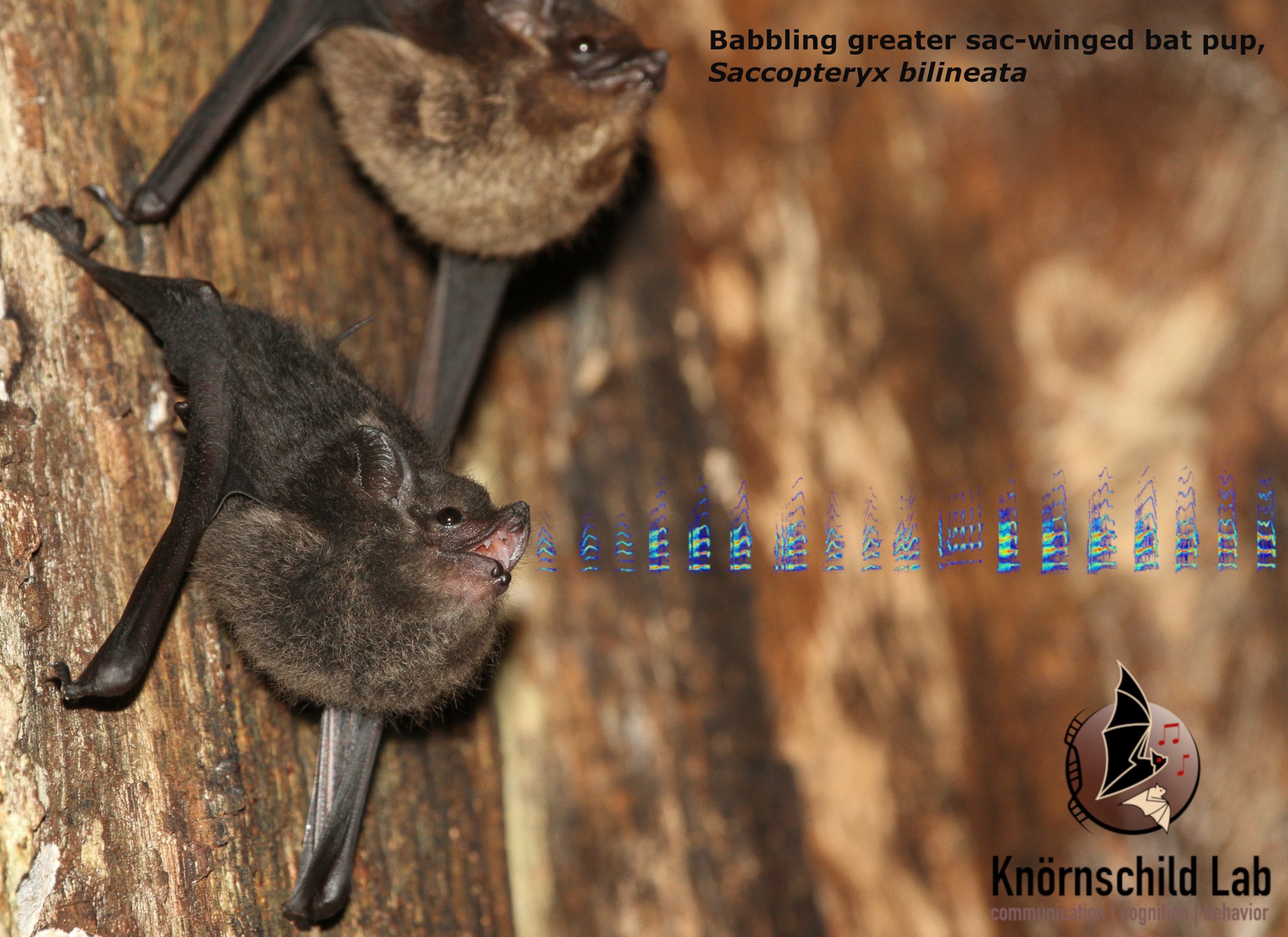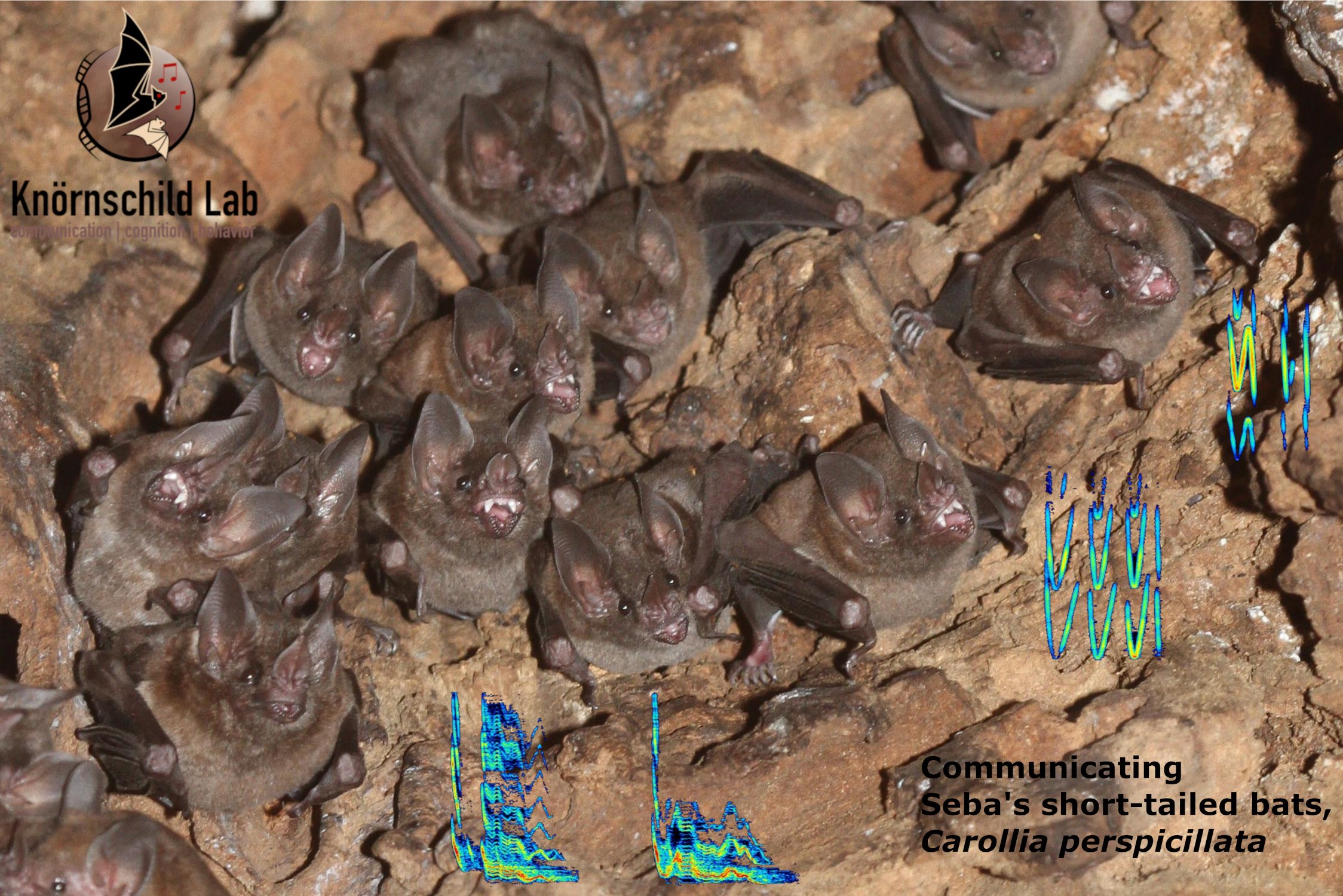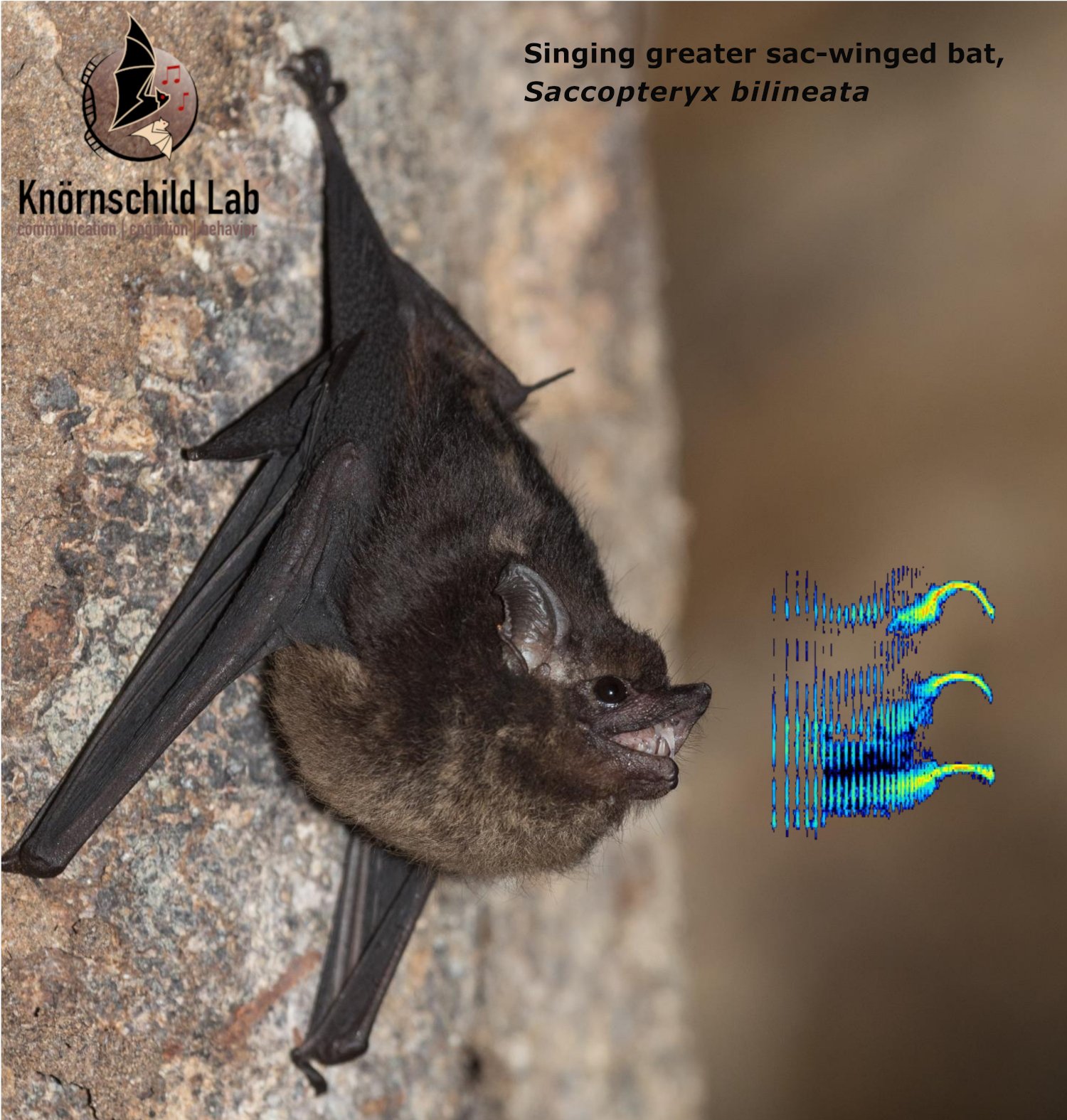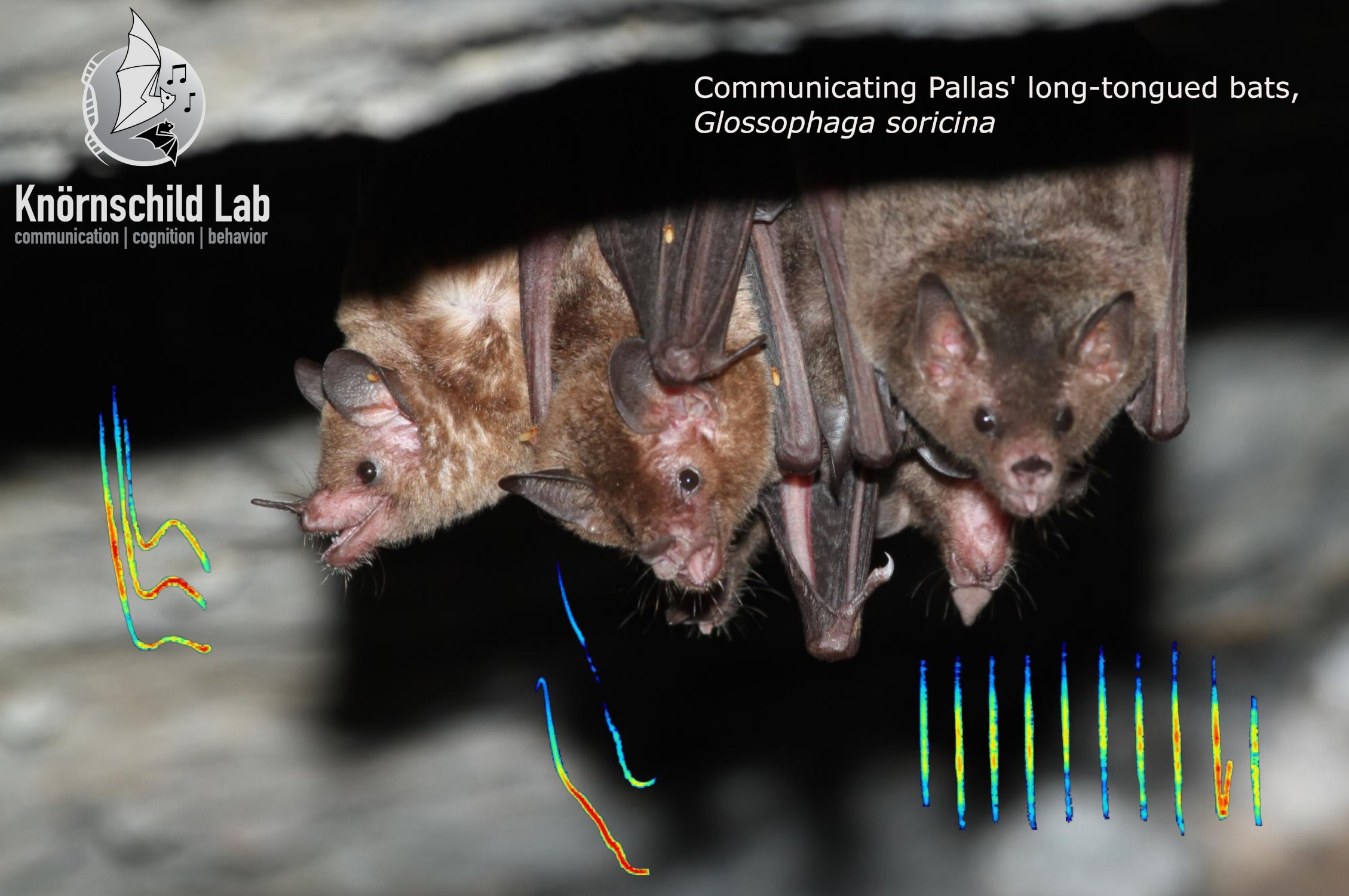Mirjam Knörnschild, Bats in Translation
September 30 2023, 15:00 BST/ 10:00 EDT/ 07:00 PST (3pm BST/ 10am EDT/ 7am PST)
Mirjam Knörnschild, Bats in Translation
Bats are virtuous vocal communicators because their ability to echolocate requires sophisticated vocal control and precise auditory perception. Some bat species are capable of learning and modifying their vocalisations based on the auditory feedback of conspecifics, others are prolific singers with an extremely high vocal output or engage in vocal turn-taking. Social vocalisations of bats encode a substantial amount of information, such as individual identity, sex, group affiliation, motivational status, etc. Decoding this information enables receivers to make informed decisions on resource allocation, mate choice, territorial defense, and cooperation. In my talk, I highlight recent findings on vocal communication in bats, with a special focus on the greater sac-winged bat Saccopteryx bilineata. My lab and I have studied this bat species for over two decades in the wild, which has resulted in detailed knowledge of its vocal and cognitive abilities. Our research highlights the importance of long-term observations on wild animals to fully appreciate the scope and depth of their social and vocal behaviors.
Mirjam Knörnschild is a cognitive scientist studying bats. She is Professor for Evolutionary Ethology at the Humboldt-Universität zu Berlin and leads a research department at the Museum of Natural History in Germany. She is also a Research Associate of the Smithsonian Tropical Research Institute in Panama. Mirjam has been investigating the communicative and cognitive abilities of wild bats for over 20 years. She is particularly interested in vocal production learning and the cultural transmission of song dialects.
Watch the recording of the Zoom conversation below.





